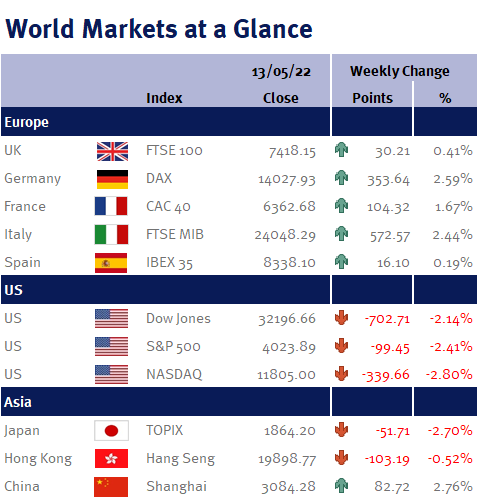This week equity markets were all about Fed and BoE monetary policy meetings.
Given recent inflation data is screaming for higher interest rates, it was no surprise to us that both central banks increased interest rates: the Fed increased US interest rates by 0.50% and the BoE increased UK interest rates by 0.25%.
However, of more importance to us was the margin of the policymaker’s vote and comments in the accompanying press conferences on the potential speed and magnitude of future increases – and while both were music to our ears, unfortunately, it didn’t prevent equity markets from ending the week lower.
In the US, the Fed chair, Jay Powell effectively ruled out an aggressive series of large interest rate increases. While he stated that the Fed is likely to continue to increase interest rates, each increase would be no more than 0.5% – and regular readers of our commentaries will know that we have argued that financial markets were wrong to expect (and price-in) a series of aggressive increases in interest rates, as we believe that interest rates increases should instead be measured and limited simply because the current high inflation rate is not a result of excess demand.


